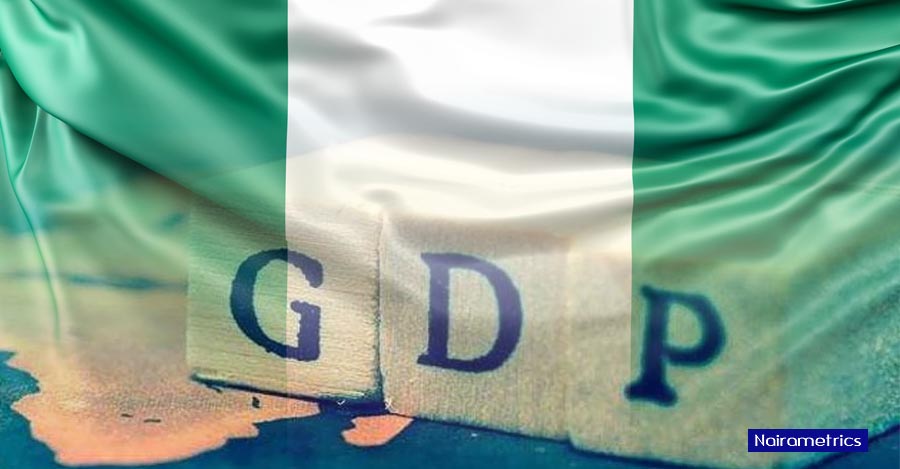Latest results released by companies listed on the Nigerian Stock Exchange reveal rising cost of goods and services is eating into profits at levels not seen since 2017.
A cursory review of some of the first-quarter results published by some of Nigeria’s largest companies reveals higher input and operational cost on a year-on-year basis. This is despite price adjustments made across board by most consumer goods companies.
A drop in revenues and profits is often a bellwether for a country’s economic growth and as more results show contraction across industries, it is stoking fears of a possible economic contraction in the coming months.
Latest report from the National Bureau of Statistics states Nigeria’s inflation rate at 15.92% up from 15.7% reported in February. The rise in operating cost of some of the companies we reviewed revealed dips in gross margins negatively impacting profitability growth.
Specifically, Nigerian companies spent a huge sum on power in the first quarter of 2022 as cost of energy surged significantly across most countries in the world. Notably, cost of diesel sold as high as N850 per litre in some areas of the country, while some firms had to cut down on working hours in order to manage costs.
This also extended to the cost of transportation as it coincided with the period when adulterated petrol was discovered in the country, which led to scarcity of petroleum products across the country. The high cost of operating expenses could cause a slowdown in economic activities, as companies could be forced to draw down on some of their activities in order to manage its finances.
What are company results saying?
MTN one of Nigeria’s largest companies and most profitable listed companies, saw its direct network operating cost increase from N92.3 billion in the first 3 months of 2021 compared to N10.2 billion as a percentage of revenue, the gross margin is 23.9% and 22.7% respectively.
- This suggests margins dropped this year compared to the same period last year. Other costs like maintenance costs increased from N4.69 billion to N6 billion.
- Nigeria Breweries, the country’s largest brewer also recorded a significant spike in direct cost during the year. Cost of sales in the first quarter of this year rose to N75.3 billion compared to N66 billion same period last year.
- Gross margins also took a hit falling to 54.6% from 62.5%. Raw materials expenses in particular rose to N54.6 billion from N46.5 billion in the first quarter of last year. Cost of distribution more than doubled from N4.5 billion to N11.4 billion.
- Cost increases were also identified in the banking sector, especially for one of the most cost-efficient banks in the country, GTCO.
- Operating expenses for the bank rose from N22 billion to N29.3 billion. While the cost increases for the banks were all regulatory induced, we saw spikes in occupancy costs (which includes diesel, fuel, and electricity costs) rise from N1.2 billion last year to N1.58 billion.
- Admin, communications, and sponsorship expenses also rose from N1.6 billion to N3.8 billion.
Nairametrics observed similar cost increases across most of the listed companies. Whilst price increases have helped cushion rising cost for some of the companies, Nairametrics anticipates a further dip in profits in the short to medium term if global inflationary trends persist.
What manufacturers are saying
Last month, the Manufacturers Association of Nigeria (MAN) warned that the high costs of diesel used by their members could lead to a high cost of goods and services due to the high cost of production.
- “Knowing that diesel has been deregulated removes the question of a buffer to the cost. The law of demand and supply is at play here and since we have historically lacked local refining capability, we are left at the mercy of the vagaries of international price and the geopolitics of it.
- Mr. Segun Ajayi-Kadir, Director-General, MAN stated that “as long as the price of crude oil continues to go up, price of AGO will equally skyrocket. It is now said to be selling at N750 per litre, up from about N300 per litre two months ago.”
- Manufacturers have also complained about the challenges with forex amidst the frequent depreciation of the Naira.
Upshots
The potential implication for Nigeria when businesses experience cost inflation could lead to a contraction in a country’s growth rates.
- Latest GDP numbers from the United States show the first GDP contraction since 2020 driven largely by inflation.
- Nigeria has been experiencing galloping inflation for over three years now, exacerbated by foreign exchange shortages, rising commodity prices and cost of doing business.
- Nigeria is yet to release its GDP data for the first quarter of the year.






















